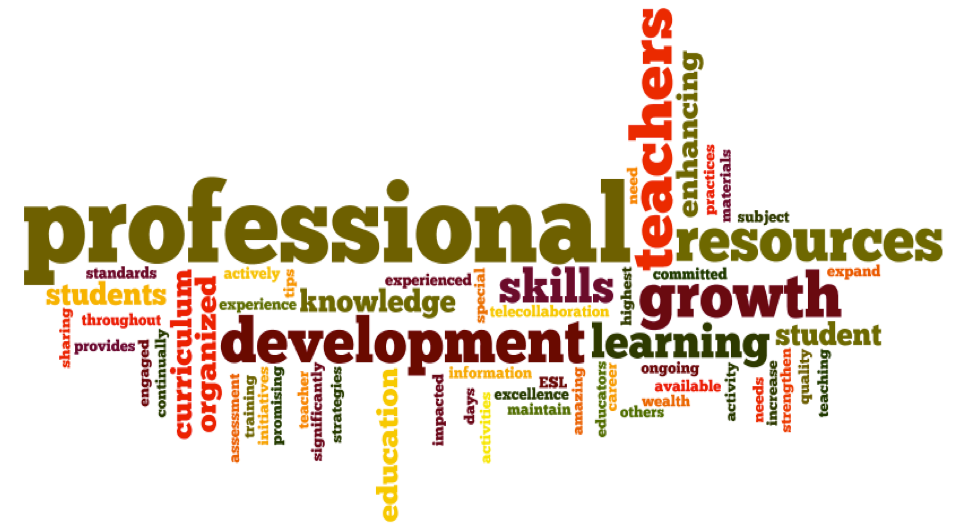Professional Development for Teachers?
Professional development is an ongoing process that helps school staff members in enhancing their knowledge and skills related to their profession. In the field of education, professional development for teachers plays a crucial role in ensuring student success. On this page, we will explore what professional development is, why it is important, professional development goals, and how educators can create an effective professional development plan to meet individual and school needs.
Professional development for teachers is a systematic approach to enhancing their knowledge and skills related to teaching. It includes a range of activities, such as attending workshops, conferences, courses, and training sessions, collaborating with colleagues, engaging in research and reading, and reflecting on their teaching practices. Professional development helps teachers stay up-to-date with the latest research and best practices, improve their instructional strategies, and adapt to the changing needs of their students.

Why is Professional Development Important for Teachers?
Professional development is essential for teachers for several reasons. First, it helps them stay up-to-date with the latest research and best practices in their field. Teaching is a rapidly changing profession, and what worked yesterday may not work today. Therefore, it is critical for teachers to stay current with the latest trends and research to ensure they are providing the best education for their students. Second, professional development helps teachers improve their instructional strategies. As they learn new techniques and methods, they can adapt their teaching to better meet the needs of their students. This, in turn, can lead to improved student outcomes. Third, professional development helps teachers to maintain their passion and motivation for teaching. As teachers learn new skills and approaches, they become more engaged and invested in their work, leading to greater job satisfaction.
Professional Development Goals for Teachers:
Professional development goals for teachers should align with their individual needs, as well as the needs of their students and their school. Some common professional development goals for teachers include enhancing content knowledge. Teachers can take courses or attend workshops to improve their content knowledge in specific subject areas. This can help them better understand the material they are teaching and develop more effective teaching strategies. Teachers can learn new instructional strategies and techniques to engage students and improve their learning outcomes. Technology becomes more prevalent in the classroom, teachers need to develop the skills to use it effectively, building tech skills could help dramatically. Professional development can help them learn how to integrate technology into their instruction and use it to enhance student learning. Teachers can work with their colleagues to share ideas and strategies, collaborate on projects, and provide feedback to one another. This can help them improve their teaching practices and provide better support for their students.
Teachers can also take time to reflect on their teaching practices, identify areas for improvement, and develop strategies to address these areas. This can help them become more effective teachers and improve student outcomes.
Creating a Professional Development Plan:
To create an effective professional development plan, teachers should follow these steps:
Teachers should identify their professional development goals based on their individual needs and the needs of their students and school.
Research Opportunities: Teachers should research professional development opportunities that align with their goals. This can include attending workshops or conferences, taking courses, or collaborating with colleagues.
Evaluate Options: Teachers should evaluate the options available to them and select the opportunities that best meet their needs and goals.
Develop a Plan: Teachers should develop a plan that outlines the professional development activities they will undertake and the timeline for completing them.
Implement the Plan: Teachers should implement their plan by attending the selected workshops or conferences, taking courses, collaborating with colleagues, and reflecting on their teaching practices.
Evaluate the Plan: After completing their professional development activities, teachers should evaluate the effectiveness of their plan. They should reflect on what they have learned, how it has impacted their teaching practices, and whether it has helped them achieve their goals. This can help them identify areas for further improvement and develop a plan for future professional development activities.
Tips for An Effective Professional Development:
Here are some tips for teachers to make the most of their professional development:
Prioritize Your Goals: Identify your professional development goals and prioritize them based on your needs and the needs of your students and school. Be selective, choose professional development opportunities that align with your goals and are relevant to your teaching practice. Collaborate with your colleagues to share ideas and strategies, collaborate on projects, and provide feedback to one another. Take time to reflect on your teaching practices, identify areas for improvement, and develop strategies to address these areas. Seek feedback from your colleagues, students, and supervisors to gain insight into your teaching practices and areas for improvement. Last tip would be to stay up-to-date with the latest research and best practices in your field by reading professional journals and attending conferences.
Watch JC Pohl’s
Staff Development Speaker Reel
What is Staff Development?
Staff development is a process of improving an organization’s workforce through training, education, and other development opportunities. It is a continuous process that aims to help employees grow professionally and personally, while also enhancing their job performance. Staff development includes activities such as orientation, on-the-job training, seminars, conferences, workshops, and coaching.
Staff development is a critical aspect of an organization’s success. It involves providing employees with the necessary training, skills, and knowledge to improve their job performance and achieve their personal and professional goals. In this article, we will explore what staff development is, why it is essential, and provide staff development solutions and ideas that organizations can use to enhance their employees’ skills and knowledge.
Why is Staff Development Important?
Staff development is essential for several reasons. It helps to improve employees’ job performance, which, in turn, can lead to improved organizational outcomes. When employees are equipped with the necessary skills and knowledge to perform their jobs effectively, they can contribute to the organization’s success. Staff development can enhance employees’ job satisfaction and motivation. When employees feel that their employer is investing in their professional growth and development, they are more likely to feel valued and motivated to perform their jobs well. Staff development also helps organizations retain their employees. Employees are more likely to stay with an organization that provides them with opportunities for growth and development.
Is Staff Development Day Different Than Professional Development Day?
A staff development day is a day set aside by an organization for the sole purpose of staff development. It is an opportunity for employees to engage in various training and development activities that can enhance their skills and knowledge. Staff development days can be organized in several ways, including workshops, seminars, conferences, or team-building exercises. The objective is to provide employees with opportunities to learn new skills, interact with colleagues, and reflect on their job performance.
Staff Training & Development:
Staff training and development are critical components of professional development. Staff training involves equipping employees with the necessary skills and knowledge to perform their jobs effectively. This can include training on specific software, equipment, or procedures. Staff development, on the other hand, is a broader concept that encompasses training, education, and other development opportunities aimed at enhancing employees’ skills and knowledge. Staff development can include activities such as mentoring, coaching, and attending conferences or workshops.
Staff Development Solutions:
There are several staff development solutions that organizations can use to enhance their employees’ skills and knowledge. Some of these solutions include:
- Coaching and Mentoring: Coaching and mentoring programs can be used to help employees develop their skills and knowledge. These programs involve pairing employees with more experienced colleagues who can provide guidance and support.
- Online Learning: Online learning programs can be used to provide employees with training and development opportunities. These programs can be accessed from anywhere, and employees can complete them at their own pace.
- Workshops and Seminars: Workshops and seminars provide employees with opportunities to learn new skills and interact with colleagues. These events can be held on-site or off-site and can cover a range of topics.
- Job Rotation: Job rotation programs can be used to provide employees with exposure to different parts of the organization. This can help them develop new skills and gain a broader understanding of the organization.
- Conferences and Industry Events: Conferences and industry events provide employees with opportunities to learn about the latest trends and best practices in their field. They can also provide opportunities for networking and professional development.
Staff Development Ideas:
There are several staff development ideas that organizations can use to enhance their employees’ skills and knowledge. Some of these ideas include:
1. Lunch and Learn Sessions: These sessions involve providing employees with lunch and a presentation on a specific topic related to their job or industry.
2. Team Building Activities: Team building activities provide employees with opportunities to work together and develop their communication and collaboration skills. These activities can be as simple as a group lunch or as complex as a team-building retreat.
3. Peer Learning: Peer learning involves having employees teach each other new skills and share their knowledge. This can be done through peer-to-peer training sessions or online discussion forums.
4. Volunteer Work: Volunteer work provides employees with opportunities to develop new skills and gain experience outside of their job duties. This can also help to boost employee morale and engagement.
5. Cross-Training: Cross-training involves training employees in different departments or roles within the organization. This can help to develop a more flexible and adaptable workforce.
Professional and staff development for teachers is essential for organizations that want to improve their workforce and achieve their goals. By providing employees with the necessary training and development opportunities, organizations can enhance employees’ skills and knowledge, improve their job performance, and retain their employees. There are several staff development solutions and ideas that organizations can use to enhance their employees’ skills and knowledge, including coaching and mentoring, online learning, workshops and seminars, job rotation, conferences, and industry events. By investing in staff development, organizations can build a more skilled and engaged workforce that can help to drive their success.
Contact TEEN TRUTH Today For Professional Development Services
JC Pohl, LMFT
President & CEO
info@teentruth.net
818.237.5082
If you’d like more information on hosting TEEN TRUTH, simply fill out this contact form and we’ll be in touch…
100% PRIVACY. NO OBLIGATION OR COMMITMENT



